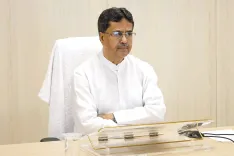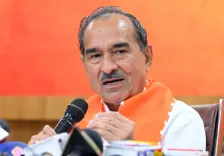Will admissions in educational institutions be based solely on merit?

Synopsis
Key Takeaways
- Admissions based on merit for future courses.
- Standardized policies for scholarships and admissions.
- Focus on employment potential in course offerings.
- 3 lakh students benefited from scholarships.
- Committee's report will guide future decisions.
Mumbai, July 3 (NationPress) The Deputy Chief Minister of Maharashtra, Ajit Pawar, announced in the Legislative Council on Thursday that future admissions to various programs at institutions such as Dr Babasaheb Ambedkar Research and Training Institute (BARTI), Chhatrapati Shahu Maharaj Research, Training, and Human Development Institute (SARTHI), Mahatma Jyotiba Phule Research and Training Institute (MahaJyoti), and Anna Bhau Sathe Research and Training Institute (ARTI) will be conducted based solely on merit.
A standardized policy will also be established concerning the number of students, general scholarships, foreign scholarships, and admission processes across these institutions.
Pawar addressed inquiries from MLCs Sanjay Khodke and Abhijit Wanjarri regarding the allocation of rental allowances and contingency funds by SARTHI.
He disclosed that from 2018 to 2025, approximately 3 lakh students benefited from government scholarships, tuition fee aid, and other initiatives across 83 courses under SARTHI.
Yet, only 3,000 students (merely 1 percent) opted for Ph.D. programs, for which Rs 280 crore was expended. This translates to an average cost of Rs 30 lakh per student over five years, a figure that requires serious scrutiny.
Furthermore, Pawar emphasized that admissions will be restricted to courses demonstrating reliable employment prospects, ensuring public resources are allocated to skill-centric and career-focused programs.
A committee, led by the Chief Secretary, was previously appointed to evaluate and suggest a unified framework for student intake, admissions, scholarships, and academic standards across BARTI, SARTHI, MahaJyoti, and ART institutions.
The committee's report has now been received, and forthcoming decisions based on its findings will be revealed soon, Pawar concluded.






